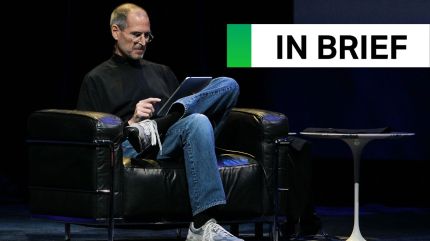Can generative AI substitute for having a social graph? California-based local experiences discovery startup Bigfoot is hoping the addition of a conversational interface to its weekend planner website — in the form of an AI chatbot it’s branding Littlefoot, which launched last week — will give it a more personalized feel while making it easier for people to find relevant stuff to do in their neighborhood.
The idea is to recreate the feeling of chatting to a “knowledgeable friend,” explains co-founder Alex Ward.
The feature lets users engage with Bigfoot’s curated supply of local events, activity spots or nightlife options via back-and-forth text — making it easy to prompt and steer the AI to serve up relevant recommendations for a little weekend fun. Say a hike with a view, followed by a BBQ lunch nearby and an evening gig closer to home. Or a cultural tour of modern art museums following by a painting class and wine tasting. The startup’s mission is to make it easier for people to do more locally in their leisure time by making the weekend planning process less of a faff.
While this idea is hardly new — travel accommodation giant Airbnb, for instance, has offered experience discovery for the best part of a decade — Bigfoot’s team reckons there’s still an opportunity to build a brand around a better weekend activity planning tool that caters to local leisure. Major platforms are more focused on travel and guided experience (see also: Get Your Guide).
Bigfoot launched in late 2022, pulling in a little pre-seed funding from some business angels and a couple of early-stage VC firms. It says it has built a supply pipeline of over 120,000 events, restaurants, nightlife, sports, outdoor activities and more across 160 cities. Those are showcased through category-focused search on its website.
The newest addition to its product is the ability for users to engage with its supply of ideas for things they could do locally via an AI chatbot powered by large language models (LLMs), including AI tech from Anthropic, OpenAI and Perplexity.
Ward, one of a trio of ex-Airbnb staffers behind Bigfoot, confirms the GenAI interface feature is essentially a product relaunch. Usage of the startup’s local events and experiences discovery platform peaked at up to around 30,000 monthly users for v1 of the product after it launched in New York and when it was shelling out on marketing, he tells TechCrunch over a call.
The team will need to secure seed funding to continue building toward their big vision: local discovery powering an offers platform for small businesses to pull in more foot traffic. So a lot is riding on Littlefoot winning friends and influencing folks looking for help locking down their next action-packed weekend.
“[At peak marketing] we were growing at about 40% month over month,” he said. “So we kind of proved that there was a real interest in this type of product. But we couldn’t just keep spending on marketing. We wanted to focus on building out a product. We heard consistent feedback from early alpha users… [that] what they wanted to see was this product where you can, essentially, talk to Littlefoot like you’re talking to that knowledgeable friend.”
That’s the bet, then. But the battle for consumer attention looks substantial — not least from the general-purpose chatbots and AI search engines that some of the self-same foundational model makers whose APIs the startup is tapping have made freely available.
Anyone can ask a tool like OpenAI’s ChatGPT or Perplexity’s AI search engine to plan them an activity-packed weekend in New York or Madrid, for instance, and immediately get a bunch of suggestions. Though these general-purpose AI tools will typically produce rather generic recommendations — picking the most obvious, touristy things.
Bigfoot’s team reckons there’s an opportunity to do a better job on local leisure discovery, recommending more interesting and contextually relevant stuff for the user to do, thanks to this combo of GenAI plus 50+ curated “trusted” data sources.
Per Ward, the supply powering their weekend plan recommendations spans mainstream content they can access through APIs, such as Google Maps data, to more off-the-beaten-track sources like specialist hiking blogs. The idea being this is a mix that enables Littlefoot to produce recommendations that aren’t so bland.
They are still drawing on mainstream LLMs to do the conversational grunt work for the tool, though.
“We use 50+ different sources, trusted sources, around the globe for supply. We also are using Perplexity to help augment our supply. We’re plugged into Perplexity’s API,” he said. “The reality is a lot of this [great local knowledge] is in the minds, or in the pins of the Google Maps of people who are saving these things. So we’re continuing to get better and better around this curated supply.”
“But for us the core is all about curated supply. What we are building in the future is the ability to connect your Google Maps API so that if you save Google pins we make it dead simple to add collections — new collections of things to do or to create new days around the things you’ve done in the past.”
“Also being able to connect your Spotify API — so we have a sense for the kind of music you like [e.g. to personalize recommendations for gigs and other local music events]. And, finally, what we actually have in alpha already is the ability to send an Apple note or a Google Map and to create an entire collection from just a list of things.”
The product is designed to offer a rich experience for users, pulling in imagery to illustrate recommended events and activities and even displaying related TikTok videos. So, basically, it’s the opposite of displaying a dry, bullet-pointed text list like you might get if you ask ChatGPT to plan you a weekend. (Albeit, some people in weekend planning mode might actually prefer a basic list — that level of info density can make it easier to cross-reference suggestions with your own trusted sources.)
However not all general-purpose AI tools are so dry on the display side. Perplexity’s AI search engine serves up some imagery by default, for example, and handily links to sources for easy reference — as the service is similarly focused on turning people’s searches into appealing summaries and even visual guides. So the competitive difference in product experience there is more of a small step than giant leap.
Something AI-recommended for the weekend?
We compared Littlefoot’s suggestions with recommendations served by general-purpose LLMs using the same prompt. Littlefoot does produce some less obvious suggestions compared to a general-purpose chatbot.
So while OpenAI’s ChatGPT’s suggestions for a weekend in Barcelona included some very obvious tourist spots like Park Güell and a Magic Fountain Show at Plaça d’Espanya, Littlefoot offered more off-the-beaten track and eclectic choices — like a hike to Parc del Mirador del Poble-Sec and an “alternative modernista tour” promising a “less touristy way to discovery Catalan modernism.”
But whether the average user will notice and appreciate this kind of nuance is more difficult to say. Add to that there was also some overlap in some of the recommendations.
People looking for more specialist weekend experiences are also likely to be hardest to win over as they will already have a bunch of their own trusted sources (i.e. those actual knowledgeable friends) for that — so competition for Bigfoot seems more likely to be mainstream general-purpose search tools.
During tests, the startup’s AI tool did misfire on some quite obvious stuff, too. For instance, asked for “outdoorsy” recommendations, the very first activity it suggested was “indoor go-karting” (per the event description). In that case, the accompanying picture did show a go-kart being used outdoors. So the issue there may be down to Bigfoot’s team (also) relying on GenAI for copywriting event/activity descriptions — and that resulting machine-generated text being misleadingly generic.
This sort of contextual mismatch does feel jarring, though, and may quickly turn people off a nascent product.
Another example: Asking it to recommend outdoor bouldering spots on natural rock the AI returned a bunch of, er, indoor climbing gyms and general fitness gyms… So this more specialist ask was even more poorly served.
Each activity recommendation includes a button below it that users can click to let the AI “make my day” — i.e. if they like the look of an idea. After a few seconds they’ll be served a richer view of a full potential weekend plan, accompanied by stills and video imagery pulled from public sources like TikTok, along with map views of recommended locations.
The logic of how the tool gets from a single suggestion the user picks out to a full plan (i.e. comprised of several things to do) is not clear. But the suggested day agenda can be edited to swap out different elements (say substituting one restaurant for another) — and there’s a copyable link for plan sharing with friends.
Overall, the interface feels a bit rough around the edges. Clearly this is MVP territory. A bunch of signposting and finessing work needs doing, especially around plan presentation, product logic and timings of transitions between visual elements. The smoothest UX aspect is definitely the text-chat with the AI — but that’s also of course the most commodified.
If the team can smooth some of these wrinkles and boost usability as they iterate — finding a sweet spot between inspiring visual flare and ease of use — they might be onto something. But there’s no doubt this is a hard problem they’re tackling in a hyper-competitive space.
Even serving better-quality recommendations for people’s weekend planning alternatives might not be enough as people will often still reach for the familiar platforms out of habit. Put another way, scaling a consumer startup can feel akin to climbing a very large mountain these days.
“I think one pitfall that a lot of new companies have around local discovery is that they expect users to do the work to add supply,” concedes Ward. “And the reality is people just want perfect, amazing, unique, curated things to do. And so there’s a lot of work that goes into that — for us to be able to have the supply there and directly address the cold-start problem that you’re not going to succeed.
“If you expect people to generate the supply for you, or to create the supply for you, it just doesn’t work.”
A lean team of six is behind Bigfoot with ideas to keep boosting functionality and improve personalization, such as letting users upload their notes and map pins to turn into visual plans or collections that could be shared.
Another idea they’re toying with is offering a version of Littlefoot that could work inside WhatsApp to reach those group chats between weekend-planning friends. But they will need to raise more funding to keep this journey going.
“We are in active conversations around our seed fund,” confirms Ward. “We are looking for great partners who share this vision to help keep building. We are a small team that’s built a lot but… the exciting part is finding really great partners who want to join us on this journey and work with us to continue to build it out.”
This report was updated with a correction to the total amount of events and activities supply Bigfoot has available































Comment